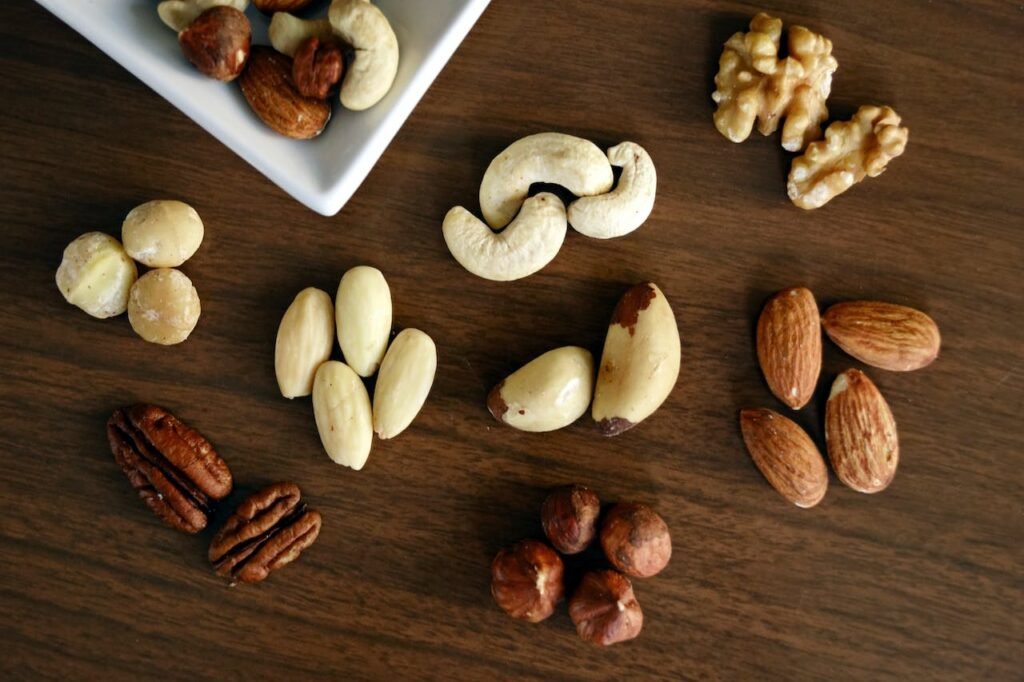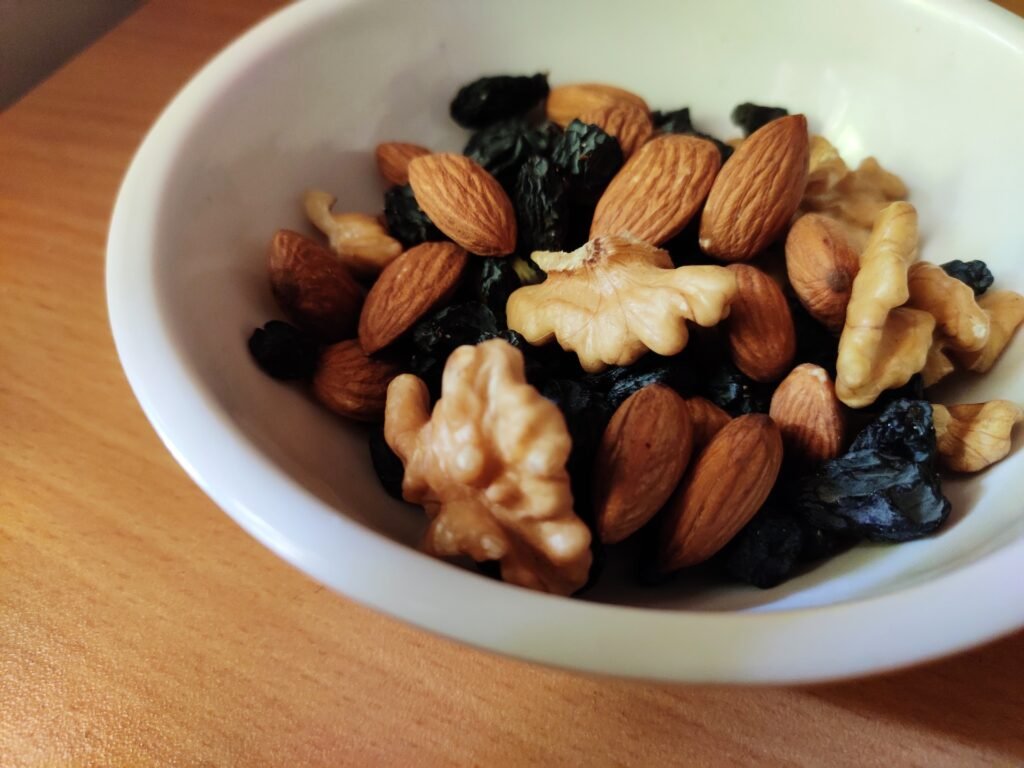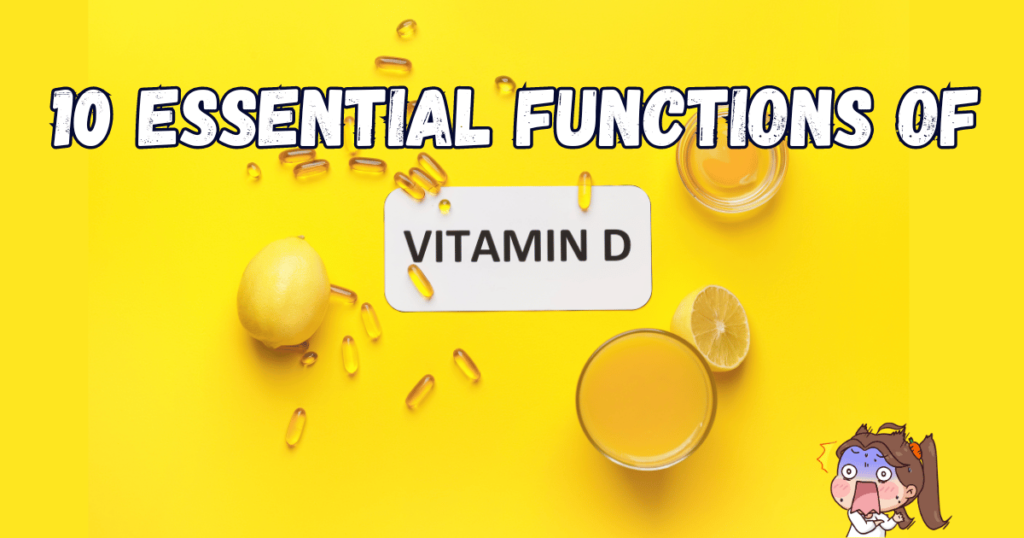Nuts, from walnuts and almonds to cashews and pistachios, are more than just tasty snacks. Often overlooked, these nutrient-dense morsels can significantly boost your health. Whether you’re snacking on them as a crispy alternative to chips or incorporating them regularly into your meals, nuts offer remarkable health benefits.
Loaded with essential nutrients, nuts are a powerhouse for enhancing immunity, heart health, and even mood. Integrating a daily handful of a variety of unsalted nuts into your diet enriches your body with vital fiber, protein, and minerals.
This article delves into the top six health advantages of regular nut consumption. The fifth benefit, in particular, may come as a pleasant surprise. Discover how these small but mighty snacks can contribute to your overall health and wellness.
1-Nuts Are Nutrient Rich

Nuts are a treasure trove of vitamins and minerals, largely because most tree nuts are, in essence, seed kernels. These humble seeds, destined to become towering trees, are loaded with nutrients for growth – that is, until they become part of our diet.
Each variety of nut boasts its own unique nutritional profile, much like how different fruits and vegetables offer varied health benefits. For instance, while citrus fruits, strawberries, and peppers are rich in vitamin C, mangoes, melons, and carrots are abundant in vitamin A.
Similarly, Brazil nuts are an excellent source of selenium, and walnuts are rich in omega-3 fatty acids.
Overall, nuts are an outstanding source of vitamin E and minerals like magnesium, selenium, manganese, copper, and phosphorus. They’re also packed with fiber and protein. While nuts do contain healthy unsaturated fats making them calorie-dense, these fats are crucial for heart and brain health. Since it’s challenging to overeat plain, unsalted nuts, incorporating them into your diet is unlikely to result in excessive calorie intake. Instead, you’ll be enriching your body with a wealth of beneficial nutrients!
2-A Good Source of Antioxidants

Every day, our bodies battle against harmful oxygen molecules known as free radicals. These unstable compounds are produced when we indulge in processed foods high in saturated fats, salt, and sugar, overconsume alcohol, smoke, inhale environmental pollutants, or face intense stress.
Free radicals are not just external threats; they also arise from essential bodily functions like breathing and digestion, making them an unavoidable part of life. If left unchecked, these free radicals can harm our cells, including immune cells, potentially leading to oxidative stress and increasing the risk of disorders like metabolic syndrome.
Enter antioxidants, the body’s defenders. These compounds roam through our system, neutralizing free radicals by donating electrons, thus preventing cellular damage. A diet rich in antioxidants is key to combatting free radical harm and maintaining a robust immune system.
Nuts are a formidable source of antioxidants, particularly polyphenols. Research highlights that walnuts and almonds, for instance, can “boost polyphenol levels and significantly reduce oxidative damage.” Another study indicates that consuming pecans may “lower levels of oxidized ‘bad’ LDL cholesterol — a crucial factor in heart disease risk.
3-Supports Heart Health

your hearts also benefit from eating nuts on a regular basis and this is all down to their ability to reduce levels of bad cholesterol. As we discovered above, the polyphenols found in nuts have an impact on bad, or LDL, cholesterol and help to lower levels of this dangerous type of blood fat, or lipid. In addition to this, compounds in nuts can also increase the particle size of the LDL cholesterol that’s present in the bloodstream. This is emerging science, but it’s thought that the larger the particle size of LDL fats, the less harmful they are. Not only that, some nuts, including hazelnuts and almonds, can help to raise levels of good, or HDL, cholesterol. It’s thought that this is due to the presence of healthy monounsaturated and polyunsaturated fats. Higher levels of good cholesterol have a protective effect on the heart. Consuming nuts can also have a positive effect on blood pressure and metabolic syndrome (a collection of health problems such as high cholesterol, high blood pressure and type 2 diabetes). This has led researchers to conclude that “nuts have a beneficial impact on many cardiovascular risk factors” which all help to reduce our risk of developing heart disease. A heart healthy food indeed!
“Eating nuts regularly is a boon for heart health, primarily because they excel at lowering bad cholesterol levels.
As previously mentioned, the polyphenols in nuts significantly impact LDL (low-density lipoprotein) cholesterol, the ‘bad’ type, reducing its presence in our blood. Furthermore, compounds in nuts may increase the size of LDL cholesterol particles. Current research suggests that larger LDL particles might be less harmful.
Beyond this, certain nuts like hazelnuts and almonds are effective in boosting the ‘good’ HDL (high-density lipoprotein) cholesterol levels, thanks to their healthy monounsaturated and polyunsaturated fats. Elevated levels of HDL cholesterol are known to protect the heart.
Nuts also positively influence blood pressure and combat metabolic syndrome, a cluster of conditions including high cholesterol, high blood pressure, and type 2 diabetes. This multifaceted impact leads experts to affirm that “nuts have a beneficial impact on many cardiovascular risk factors,” substantially lowering the risk of heart disease. Thus, nuts are indeed a heart-healthy food choice!
4-May Help Lower Blood Sugar Levels

High blood sugar, akin to elevated cholesterol, often stems from poor dietary and lifestyle choices, increasing the risk of prediabetes and type 2 diabetes.
Nuts, known for their low carbohydrate content, are an excellent dietary option. Carbohydrates are broken down into sugars during digestion, so opting for low-carb nuts over sugary snacks is a healthier choice.
Moreover, the benefits of nuts extend beyond their carb content. A study focusing on individuals with metabolic syndrome revealed that consuming 25g of pistachios twice daily led to a 9% reduction in fasting blood sugar levels, compared to those who didn’t eat pistachios. The study concluded, “Regular pistachio consumption as a snack improves blood sugar control, blood pressure, obesity, and inflammation markers in diabetic patients.”
This suggests that nuts can positively impact various diseases and biological functions. Another research highlighted that walnuts, in particular, could lower fasting insulin levels, offering additional benefits for those with high blood sugar or type 2 diabetes.
5-Nuts Make a Great Snack for Weight Management

Including nuts in a weight management diet may seem paradoxical given their high fat and calorie content. Yet, research suggests that nuts can indeed aid in weight loss, a fact that might come as a surprise.
Despite their calorie density, nuts have a satiating effect, making us feel fuller. Interestingly, not all calories from nuts are fully absorbed by our bodies. A portion of the fats in nuts gets trapped in their fibrous structure and passes through the digestive system unabsorbed. This means that, although nuts provide calories, about 5-15% of these calories are not absorbed, reducing their potential impact on weight gain.
Further studies, including one focusing on almonds, have shown that nut consumption can curb hunger, leading to reduced overall calorie intake. This reduction is beneficial for those following a weight loss diet.
Nuts are also a key component of the Mediterranean diet, renowned for its health benefits and often associated with maintaining a healthy weight.
6-Natural Mood Booster

The notion that a simple, easily accessible food like nuts could yield such extensive health benefits may seem almost too good to be true. These benefits alone could enhance our mood, but there’s more. Scientific evidence supports these health advantages and further indicates that nuts positively influence our emotional wellbeing.
Nuts are a rich source of tryptophan, an amino acid vital for the brain’s production of serotonin. This neurotransmitter plays a crucial role in mood regulation and can help alleviate depression and anxiety. Essentially, higher tryptophan levels enable the brain to produce more serotonin, potentially uplifting our mood.
Specifically, Brazil nuts are noted for their high levels of selenium and zinc, both critical for brain health. A deficiency in either mineral has been associated with increased risks of low mood and depression.
Which Nuts Are Ideal for Daily Consumption?
These modest wholefoods are far from mundane. Brimming with vital nutrients, antioxidants, fiber, and protein, nuts are not only nutritious but also aid in various health aspects.
Whether whole, crushed, powdered, or chopped, we suggest incorporating a variety of nuts into your weekly diet. A daily handful of mixed nuts is optimal to gain a broad spectrum of nutrients.
Nuts are versatile – enjoy them as an afternoon snack, sprinkle them on salads, or incorporate them into savory dishes like curries.
For a breakfast twist, blend nuts into your smoothies. Use a powerful blender to mix them with your favorite smoothie ingredients. Nut butters, especially those made from peanuts, cashews, or almonds, are another great option. They pair wonderfully with smoothies or wholemeal toast.
Steer clear of salted or artificially flavored nuts, such as dry-roasted peanuts or sweet chili cashews, except as an occasional indulgence. These often contain excess salt and artificial flavorings.
Instead, choose raw or plain roasted nuts that are minimally processed, unsalted, and unflavored to get the most natural and healthful benefits.



